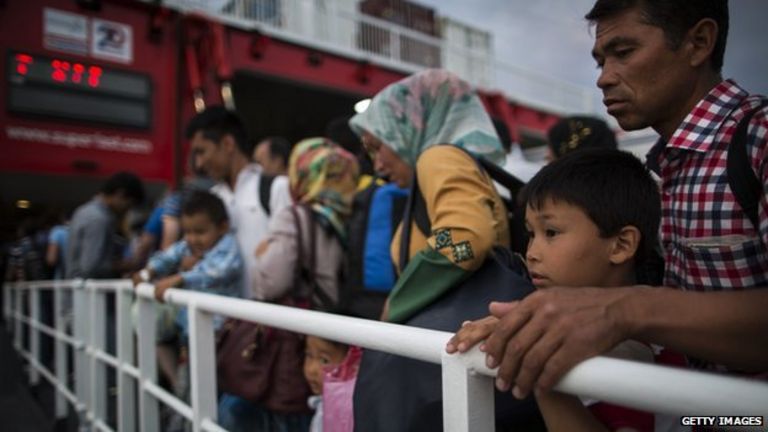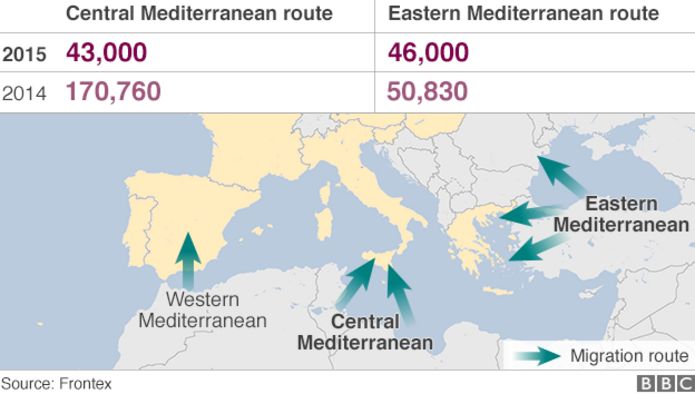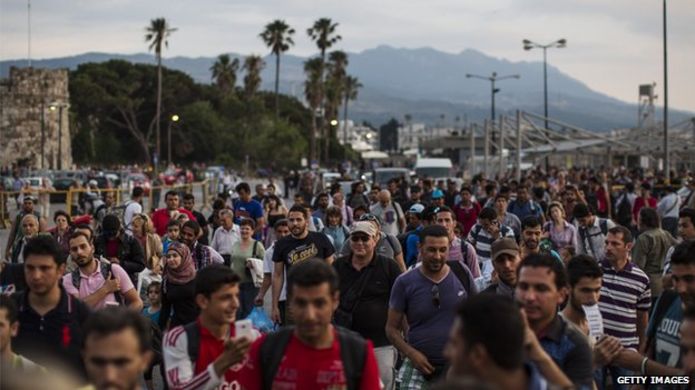
-
June 5, 2015

More migrants are trying to reach the EU via Turkey and Greece than taking the perilous sea crossing from Libya, the EU's border management agency says.
So far this year around 46,000 migrants have used the eastern Mediterranean route, compared with 43,000 crossing between Libya and Italy, Frontex says.
This trend began well before EU leaders started discussing ways to disrupt smuggling networks based in Libya.
A number of factors may be behind this shift in migration patterns.
Chaos and violence in Libya are almost certainly the main contributor, with horrific stories of the abuse of migrants filtering back to host countries.


And while crossing the Aegean Sea is not without dangers, the boat journeys to Malta, Lampedusa and Sicily are longer and more perilous.
Red tape gets in the way too.
Last year, both Algeria and Egypt adopted visa requirements for Syrian citizens, adding an administrative hurdle to refugees fleeing Syria's protracted civil war.
Frontex says it is also seeing evidence of African migrants avoiding Libya. Usually this means catching a flight to Istanbul before crossing the Aegean to Greece.
"It's a phenomenon being watched with great interest because it could point to an evolution in routes of migration," Fabrice Leggeri, Frontex Executive Director, told the French financial newspaper Les Echos.
It seems likely that if European leaders go ahead later this month with plans to disrupt Libyan smuggling networks, even more migrants will switch routes.
"If there's a military operation in the vicinity of Libya, that could change migration routes and tilt them towards the east," Mr Leggeri said.

Frontex officials point out that shifts in migration are common.
"The smuggling networks are rather flexible," a spokeswoman at Frontex told the BBC.
"There are so many factors that might influence migrant flows," she said.
Recent years have seen dramatic shifts.
After Libya signed an agreement with Italy in 2009, the number of migrants reaching Europe from Libya plummeted.
In 2012, in the immediate aftermath of the overthrow of Libya's dictator Muammar Gaddafi, the numbers dropped again.
But in 2014, almost 171,000 migrants crossed the Mediterranean from Libya, compared with just over 50,000 who made the journey from Turkey.
The answer, Frontex officials say, is the need for the EU to be flexible.